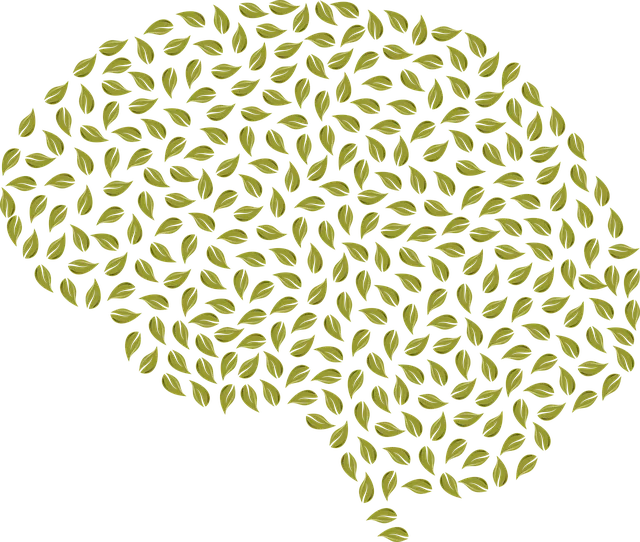Kaiser Boulder provides comprehensive mental health services leveraging Resilience Building Exercises (RFM). Through programs like Social Skills Training, individuals gain emotional regulation, problem-solving, and coping skills. Mindfulness meditation, individual therapy, group support, workshops, and educational materials empower clients to develop resilience and navigate life stressors. Evaluations measure success, ensuring continuous improvement in services that help folks access mental health care and thrive.
“Uncovering the power of resilience is a transformative journey, especially within clinical settings. This article explores the integration of RFM (Resilience Building Exercises) as a game-changer in mental health care. We delve into the process of implementing these exercises, drawing insights from Kaiser Boulder’s approach to enhancing patient support.
Learn how accessing mental health services through Kaiser Boulder can be streamlined, and discover practical steps for incorporating RFM into clinical practice, ultimately fostering resilience among individuals seeking support.”
- Understanding RFM and Resilience Building Exercises
- Accessing Mental Health Services through Kaiser Boulder
- Implementing RFM in a Clinical Setting
- Measuring Success and Continuous Improvement
Understanding RFM and Resilience Building Exercises

Resilience is a critical component of mental health and well-being, especially in navigating life’s challenges. Resilience refers to the ability to adapt and bounce back from difficult situations, trauma, or stress. It empowers individuals to overcome obstacles and maintain a sense of stability and hope. Understanding this concept is the first step towards enhancing resilience, and that’s where Resilience Building Exercises (RFM) come into play. RFM offers structured strategies to develop mental fortitude and cope with various life stressors.
By participating in these exercises, individuals can learn valuable skills such as emotional regulation, problem-solving, and effective coping mechanisms. Kaiser Boulder, for instance, provides mental health services that incorporate RFM techniques through their comprehensive programs. These include Social Skills Training and Mental Wellness Coaching Programs Development, designed to empower individuals with the tools to build resilience and improve their overall mental wellness. Through these initiatives, folks can access resources and guidance to enhance their ability to handle life’s curveballs, ensuring a more robust and balanced mental state.
Accessing Mental Health Services through Kaiser Boulder

Accessing mental health services through Kaiser Boulder can be a game-changer for many individuals seeking support for their emotional well-being. The organization offers a range of resources designed to promote resilience and help people navigate life’s challenges. One effective technique they utilize is mindfulness meditation, which has been scientifically proven to reduce stress and enhance overall mental clarity. By incorporating this practice into their programs, Kaiser Boulder empowers its clients to develop coping strategies that foster positive thinking and emotional resilience.
For those interested in exploring these services, Kaiser Boulder provides several avenues for connection. Whether it’s through individual therapy sessions or group support meetings, individuals can find a safe space to discuss their concerns openly. The organization also emphasizes the importance of self-care and offers workshops and educational materials on various topics, including stress management and emotional well-being promotion techniques. By combining professional guidance with practical tools, Kaiser Boulder ensures that its community members have the resources needed to build resilience and thrive.
Implementing RFM in a Clinical Setting

Implementing RFM (Resilience, Flexibility, and Mindfulness) in a clinical setting offers a transformative approach to mental health care, particularly within the context of services provided by Kaiser Boulder. This methodology recognizes the inherent value of equipping individuals with practical tools to navigate life’s challenges. By integrating RFM practices into therapy sessions, healthcare professionals can empower patients to develop resilience, fostering their ability to adapt and bounce back from adverse situations.
The process begins with educating patients on mental health literacy, encouraging self-care routine development for better mental well-being. This includes promoting mindfulness techniques, such as meditation or breathing exercises, to enhance present-moment awareness and emotional regulation. Additionally, social skills training becomes an integral part of the program, teaching effective communication strategies to foster healthy relationships and support systems, thereby strengthening overall resilience.
Measuring Success and Continuous Improvement

Measuring success is a crucial step in implementing resilience-building exercises like RFM (Recovery, Resilience, and Mental Health). At Kaiser Boulder, we utilize various methods to evaluate progress, including pre and post-program assessments, feedback from participants, and outcomes tracking. By understanding how these exercises positively impact individuals’ mental health services access and overall well-being, we can refine our programs for maximum effectiveness.
Continuous improvement is integral to the success of resilience-building initiatives. Through analyzing data and participant experiences, Kaiser Boulder identifies areas for enhancement in its Social Skills Training and Crisis Intervention Guidance programs. Additionally, we explore innovative approaches such as producing a Mental Wellness Podcast Series to reach a wider audience and provide accessible mental health resources. This holistic approach ensures that our services remain relevant and beneficial in helping folks navigate life’s challenges.
Resilience is a powerful tool for navigating life’s challenges, and integrating RFM (Resilience, Flexibility, and Mastery) exercises into clinical settings can significantly enhance patients’ coping mechanisms. By combining these techniques with access to quality mental health services, such as those offered by Kaiser Boulder, individuals can learn to manage stress and adversity effectively. Measuring success through continuous improvement ensures that these programs remain tailored to the evolving needs of the community, providing a comprehensive approach to fostering resilience and overall well-being. For those seeking mental health support, understanding how to access these resources is crucial in building a robust foundation for their journey towards improved mental health and resilience.






